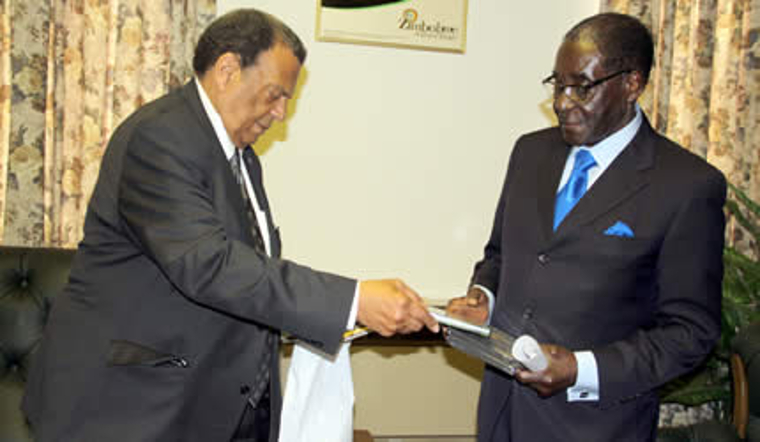 The Zimbabwe African National Union–Patriotic Front (ZANU-PF), which has governed Zimbabwe since independence in 1980, is well known for denouncing the United States’ role as a superpower that polices the world.
The Zimbabwe African National Union–Patriotic Front (ZANU-PF), which has governed Zimbabwe since independence in 1980, is well known for denouncing the United States’ role as a superpower that polices the world.
In a 2007 address at the United Nations, then Zimbabwean President Robert Mugabe assailed his American counterpart, George W. Bush. Mugabe charged: “his hands drip with innocent blood of many nationalities. He kills in Iraq. He kills in Afghanistan. And this is supposed to be our master on human rights?”
Confrontation with the US, a recurrent feature of Zimbabwe’s political history since the 1960s, surged after Washington adopted a bipartisan sanctions package in 2001. The European Union also imposed sanctions.
US officials have repeatedly stated that the sanctions target specific individuals or entities that have abused human rights or undermined democracy. ZANU-PF has responded by pointing to UN reporting which notes that the sanctions have weakened the country’s economy and impeded national development.
I am a historian of Zimbabwe’s liberation struggle. My forthcoming book focuses on its formative stages in the late 1950s and early 1960s. This was when Mugabe first became active in politics and the US got more involved in the politics of what was then Rhodesia, a British colony. In my view, the 21st century hostility obscures a nuanced historical relationship between the US and ZANU-PF.
At first, the fledgling liberation movement valued American support. ZANU-PF broke away from the Soviet-aligned Zimbabwe African People’s Union (ZAPU) in August 1963. ZANU-PF was originally known as ZANU, but adopted the “PF” suffix ahead of elections in 1980.
This context is relevant now because Zanu-PF efforts to consolidate both domestic and pan-African support selectively overlook more compatible aspects of its historical relations with the US.
ZANU-PF has exploited sanctions to its advantage.
Emmerson Mnangagwa, previously Mugabe’s deputy, came to power in a factional coup in late 2017. He has successfully mobilised pan-African support against sanctions.
Since 2019, the Southern African Development Community and the African Union have observed 25 October as “Anti-Sanctions Day” in solidarity with the ZANU-PF leadership.
ZANU-PF’s anti-American rhetoric is not only deployed to win friends abroad. It is also a prominent campaign tactic at home.
With general elections expected in July or August, ZANU-PF is following the strategy again. It’s discrediting its leading opponent, Nelson Chamisa of the Citizens Coalition for Change, as a “US pawn”.
His predecessor, Morgan Tsvangirai, faced similar treatment.
Zimbabwe’s partisan state media routinely employ such terms as “puppets”, “pawns” and “lackeys” to describe Chamisa and his party. These jibes are intended to convince Zimbabwean voters that Chamisa would prioritise foreign interests.
Continued next page
(138 VIEWS)

